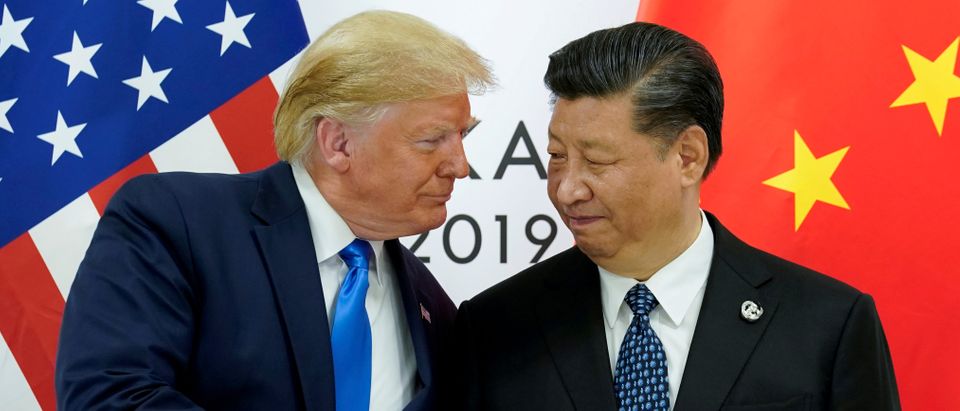This week’s happy talk over the “Phase One” trade accord with the People’s Republic of China has been similar to the happy talk in 2000, when America concluded negotiations with the PRC to allow it to enter the World Trade Organization.
Back in 2000, the stakes were simple: by giving up America’s right to unilaterally punish the PRC for trade violations, the PRC would commit to do all manner of good things for the American economy. Clinton’s administration reassured us, saying the PRC:
- Would have to play by the international trade rules established by the WTO;
- Would strengthen protections for U.S. intellectual property;
- Would dismantle trade-distorting state-owned enterprises;
- Provide more access for U.S. agricultural and manufactured goods, and
- Would be subject to WTO sanctions for any infractions.
As the past 20 years have shown, none of these promises were met.
This is not surprising, considering the U.S. reluctance to punish the PRC, even when it was easy to do so.
Recall that before the PRC became a WTO member in 2001, the United States had unilateral powers to retaliate against their unfair trade practices.
U.S. firms could bring complaints to the U.S. International Trade Commission. The Commission would investigate whether the PRC was engaged in intellectual property theft, providing state subsidies to keep export prices artificially low, etc. If the Commission ruled against the PRC, the United States could issue retaliatory tariffs quickly.
When the PRC became a WTO member the game changed completely.
If the United States brought a dispute to the WTO, the PRC knew only too well how to play that game. First, the WTO’s dispute resolution process is creaky and laborious — and the PRC manipulated the process to delay any decisions. Second, the PRC asserted to the WTO that it was a “developing country” and therefore unable to institute measures to resolve U.S. complaints.
In annual U.S. reviews of individual nations’ intellectual property protections, the PRC was routinely cited as noncompliant. As a result, the U.S. Trade Representative would stoutly assert how the PRC would be put on a “priority watch list” and “monitored” — paper tiger punishments.
Under Presidents George W. Bush and Barack Obama, paper tiger punishments against the PRC were commonplace. U.S. complaints brought to the WTO resulted in low or no punitive actions against the PRC.
Meanwhile, the PRC’s export surplus with the U.S. hit a staggering $323 billion in 2018. Significantly, the surplus dropped 8.5 percent (to $296 billion) in 2019 due to President Trump’s retaliatory tariffs.
That last sentence demonstrates the difference between the Clinton and Trump negotiations with China. President Trump has lit a match to the hundreds of paper tigers of previous administrations.
Nevertheless, there are significant questions:
- Will the PRC comply with its commitments?
- What will be America’s reaction to the PRC’s first violation of a commitment?
- Assuming the PRC’s compliance is satisfactory in the near term, will the PRC continue that level of compliance if President Trump no longer occupies the White House?
- Or is the PRC playing a waiting game, hoping that the next president is a Democrat disinterested in trade policy — and the paper tigers return?
I was a career civil servant in 2000 working on international trade issues, and I was invited to the White House ceremony celebrating the conclusion of the U.S.-PRC trade negotiations. When I stepped up to shake President Clinton’s hand, I noticed he was sporting a “Hillary for Senate” lapel pin.
Coincidence? We’ll probably never know.
Joanne Butler was an international trade specialist at the Office of the U.S. Trade Representative and at the Foreign Agricultural Service at USDA in the George H.W. Bush administration. In the George W. Bush administration, she was a senior adviser and speechwriter at the Department of Labor.
The views and opinions expressed in this commentary are those of the author and do not reflect the official position of The Daily Caller.


